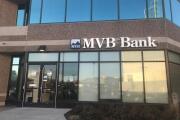
Lending tapered off substantially in the first quarter at community banks and continues to weaken.
Median first-quarter loan growth among banks with $10 billion of assets or less slowed to 1.3% from 3% the prior quarter and 3.4% in the third quarter of last year, according to an S&P Global Market Intelligence analysis of earnings reports. Loan growth slowed across all commercial segments, and consumer loans contracted by 0.1% during the quarter.
The data reflects in part the recent
During past economic downturns, more borrowers struggled to make loan payments and banks' credit quality deteriorated. As such, more lenders are taking steps to curb their credit risk. They're
For example, FB Financial in Nashville, Tennessee, said it would slow commercial lending until it's clearer about which industries present the greatest danger of loan losses. Its loans grew during the first quarter, but at a rate shy of 1% relative to the prior quarter.
The $13.1 billion-asset bank's president and CEO, Christopher Holmes, said credit quality remains sound. But recession concerns combined with the recent banking crisis — including
"Despite the benign results to date, we're even more conservative with our loan portfolio than typical," Holmes said. "We're not eager to aggressively grow the asset side of the balance sheet until we can understand which sectors are due for outsize losses."
The latest Fed data shows that FB is hardly alone.
Total loans among U.S. banks in April were flat compared with the prior month, according to the Fed. Loans during the first week of May ticked down slightly — by less than 1%.
The Fed's latest Senior Loan Officer Opinion Survey found a majority of respondents expected to tighten lending standards across all categories for the remainder of 2023 regardless of whether there is a recession.
"Lending trends are holding in OK, but they're nothing to write home about," Piper Sandler analyst Scott Siefers said. Given the turbulent operating environment, the flattish Fed data is "about as good as we could hope."
ConnectOne Bancorp in Englewood Cliffs, New Jersey, said its first quarter loans were basically unchanged from balances at the end of 2022, and the $9.9 billion-asset company expects more of the same through 2023.
"So being flat, in my opinion, in this economic cycle with our credit discipline, I would say that's a win," Chairman and CEO Frank Sorrentino said on the bank's recent earnings call.
Most community banks are active in commercial real estate lending. ConnectOne and others caution against painting all CRE loans with the same brush. But lenders acknowledge that some urban office towers and other properties once dependent on the foot traffic lost to remote-work trends are vulnerable. Others, such as suburban health clinics, are still flourishing. The divide requires lenders to be increasingly discerning.
"We've been very, very careful and disciplined about what we lend to," Sorrentino said. "We look at more than just the asset itself. We're looking at the sponsors. We're looking at track records. We're looking at growth trends and each of the submarkets. Each of the categories and each of the different types of real estate have a completely different complexion."






